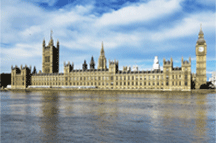Part 2 of the Lobbying Bill continued to be debated on Wednesday 18th December in the House of Lords for a fourth and final day at Committee stage.
The first part of the debate focused on changes to existing limits of controlled expenditure by third parties. Lord Hardie (CB) opened discussion by challenging the reason behind these changes. The current limits are £10,000 for England and £5,000 for each of Scotland, Wales and Northern Ireland. The Bill would introduce a limit of £5,000 and £2,000 respectively. Lord Hardie argued there is no reasonable justification for these changes and wished to know “how can the Government justify reducing expenditure limits while at the same time increasing the range of qualifying activities”.
Peers went on debating issues concerning the fact that charities and campaigners would be subject to a constituency limit on their campaign spending of £9,750 “if they have no significant effects in any other constituency or constituencies”. Lord Tyler (LD) pointed at the challenges this would bring along by arguing “it would be very difficult to see what relative effect [a campaign] was going to have in different adjoining constituencies”. Baroness Mallalieu (Lab) not only agreed with Lord Tyler’s views, but also added that the proposed changes are “written in gobbledegook” and charities “would be bound to have to seek expensive legal advice” to understand the new rules.
In the third part of the debate, Lord Harries of Pentregarth (CB), Baroness Mallalieu (Lab) and Lord Cormack (Con) expressed concerns about the changes on targeted expenditure limits. Lord Wallace of Tankerness (LD) clarified that the Bill would introduce “a new measure that requires third parties that spend significant sums in a way that can reasonably be regarded as supporting a particular political party or its candidates to be specifically authorised by the relevant political party to campaign in that manner.”
Lord Hardie suggested the addition of “publications of guidelines for third parties regarding regulation of expenditure”, “so that they are clear what actions they must take to comply with the provisions of the Bill”.
The fourth part saw Peers discuss the reporting of donations to recognised third parties. Lord Campbell-Savours (Lab) suggested an “attempt to reduce some of the controversy over the funding of political parties” by incentivising “a system of donations by individuals by allowing taxpayers to reclaim the basic rate of tax on their donations to political parties. It would limit the relief to the standard rate. It would operate in the same way as gift aid to charities or covenanting to your local church.” He argued “it would widen the donor base” and, therefore, prevent that “a few large donors and organisations stand accused of exercising undue influence over the democratic process”.
Finally, Lord Hodgson of Astley Abbotts (Con) suggested “a review within two years of [the Bill] coming into force”. He stated that the NCVO is supporting this proposal. Reviewing the Bill after the general election in 2015 will enable “Government, Parliament and the parties affected, including the charity sector” to “decide and lobby for whatever changes need to be made”.
The Bill will return to Parliament after Christmas recess on 13th January 2014 for Report stage in the House of Lords.












